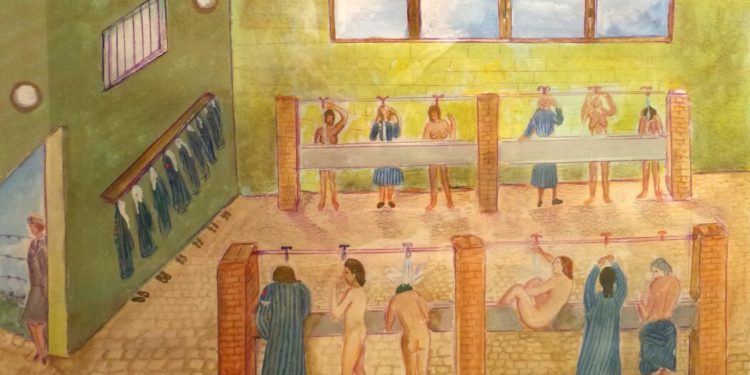By THE NEW YORK TIMES
Josette Molland, who died at 100 in France on Feb. 17, was a young member of the French Resistance during World War II when she was captured by the Gestapo and imprisoned in Nazi forced-labor camps for women. She survived, after witnessing and enduring repeated episodes of brutality. Later, after her return to France, she spoke to students about her experiences for years.
In the 1980s, however, worrying that her story wasn’t getting through to them, she concluded that telling the young of her camp life was not enough. She would have to show them. So she set about painting, from painful memory, scenes of the harsh incarceration that she and many other female inmates had suffered. She produced 15 paintings in all, in folk-art style. Here are five of them, with the text she wrote to accompany them.
‘The Washroom’
“Place where one washed. No soap, toothbrush, or towel. Cold water flowing into a sort of narrow, awkward trough.”
‘50 Blows of the “Gummi”’
“Nearly always fatal if the woman was thin. Here the blows are administered by our block captain, a German common-law prisoner (Green Triangle).”
‘Liberation of the Camp by Polish Partisans on Horseback’
“They had surprised the SS, ready to flee, and having mined the camp.”
‘At the Dentist’
“Naked, so nothing could be hidden in clothing. He’s looking for gold (used during that period). He pulls out the crowns, with the tooth. Here the bucket is full of gold.”
‘She Had Just Cut Down a Tree’
“She collapsed with fatigue. The “auseherin” (guard) finished her off with a bullet to the back of the head.”







Discussion about this post